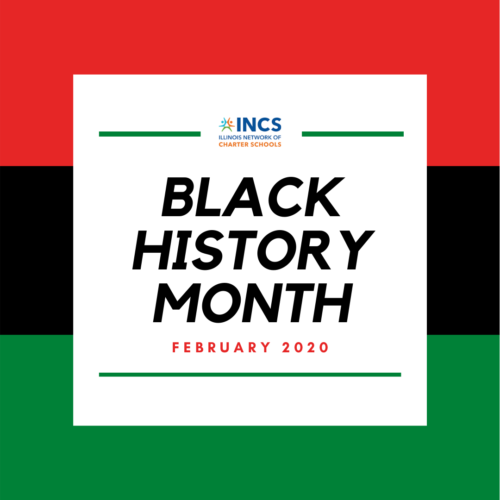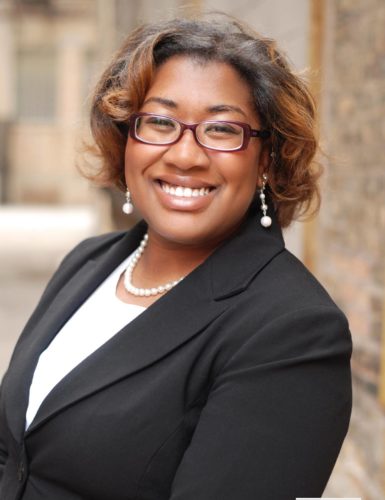Features Posts
This Black History Month, Let’s Reclaim the Black Narrative
Posted on: February 18, 2020
 It was a story that I knew white admissions counselors would like: the little South Side Black girl who persevered in the face of insurmountable odds.
It was a story that I knew white admissions counselors would like: the little South Side Black girl who persevered in the face of insurmountable odds.
I suppose it made sense at the time. I needed something to distinguish myself at my predominately white school, where everyone was very qualified for college, so I focused heavily on the burdens my family overcame to get me to where I was. But I couldn’t shake the feeling that there was so much more to my story that was worth being told.
What I started to feel then, and what I certainly know now, is that we rarely frame Black narratives in a way that gives credit for our accomplishments without any caveats. Students like me succeed not in-spite of their blackness, but because of it. Our narratives are not singular, and we are more than the trauma that lives in our DNA. Strength, too, lives within us, apart from any oppression as a necessary catalyst. Black History Month is an opportunity to reshape our narrative and, as an education community, provide our students with a story that is not solely rooted in tragedy. Now more than ever is the time to reclaim our story and frame it for the future on our own terms.
Black History did not just begin during the Middle Passage and end with the Civil Rights Act of 1964, as it is often characterized during this month. Our history existed long before our ancestors were ripped from their homes and chained to each other, and it includes every Black person who is a part of the diaspora across the Americas. We are as colorful as the beauty of the Caribbean, as vast as the mountains of the South America, and we move through this earth gathering the seasonings and spices of every community we touch, creating potlucks and cookouts of which most can only dream.
Too often, that history is streamlined or glossed over, and we allow ourselves to tell simple narratives when the truth is far deeper. For example, when I visited the African American History Museum in Washington D.C. recently, it was the first time I’d seen an extensive exhibit on Malcolm X and the Black Panthers that didn’t villainize them or rewrite a narrative that they were vigilantes. It was empowering to see the truth told so boldly. Certainly, the Black Panthers took a different approach than the peaceful protests we’ve learned about in history books, but I argue that the simpler story is told time and again because it’s the easier, more palatable narrative to teach: to turn your cheek in the face of oppression, like Dr. King. But even his narrative is not so singular. We’ve distorted Dr. King’s message of love and non-violence to create this teddy bear figure that feels more comfortable than the complexities of his actual nature, which obscures the truth of his real strength.
Based on what I learned in school, I used to think if I had grown up in the error of the Civil Rights Movement, I would have peacefully protested alongside Dr. King’s followers, as the historical narrative told me I should. The older I get though, the more I realize that I’m much more Black Panther than not, and frankly, I think a lot of our kids are too. They are angry and they deserve to be. Crucially, they also deserve to know that with supportive communities and an education system that recognizes their inherent strength – not just their oppression – our students can channel that anger into positive outcomes.
I cried many, many tears during my museum visit. Not at the anger and disappointment I felt as a Black American (though don’t get me wrong, I felt it). But my tears carried the excitement of progress. As I navigated the ramps up to the 21st century, I sobbed blurry tears staring through the clear glass window that displayed President Obama’s and First Lady Michelle Obama’s inauguration outfits. I sobbed with joy at how far Black Americans have come and the legacy we are going to leave for our decedents in the next 100 years.
I should be clear that my call is not to ignore the painful parts of Black History. I strongly believe in the old saying that “those who do not know their history are doomed to repeat it”. However, I encourage all of us, especially educators, to make sure that we frame for our children that they have every ounce of power within them to reclaim that past and reshape their future.
My challenge to all of us in education is to examine how we teach and talk about Black History:
- Ta-Nehisi Coats is an essayist, author, and National Book Award winner, who traverses popular culture and politics, while writing authentic stories of the black experience. Have you considered teaching Between the World and Me to your high school class?
- The Black Panthers, often vilified for its Black power message, created the “Free Breakfast for School Children Program“as a way to uplift and empower a disenfranchised community. This program grew from a small church in Oakland to a national success. J. Edgar Hoover and the FBI sought to shut down the Panthers and, by extension, this program. Subsequently, the Federal government revived a very similar free federal breakfast program just a few years later – of course, with no credit to those who created it. Which version of this story do you teach your students?
- In 2016, National Center for Education Statistics released data that concluded that Black women are now the most educated group in the U.S., but make up just 8 percent of private sector jobs and 1.5 percent of leadership roles. How do we frame this narrative for our young Black girls?
- Angela Rye is an attorney and political strategist, who is Principal and CEO of IMPACT Strategies. She is a political analyst for both CNN and NPR. While often criticized for her abrasive demeanor when debating issues, she has successfully dismissed the “angry Black woman” critique as she relies on her sense of savvy and knowledge to shut down her opponents. Do you want to get our young people civically involved? Start with introducing them to an Angela Rye debate. Whether you agree with her or not, your students will see a version of themselves embattled in some of the most historic discussions of our time.
The Black National Anthem, “Lift Every Voice and Sing” tells us to “sing a song, full of the faith that the dark past has taught us/ sing a song, full of the hope that present has brought us/ facing the rising sun of our new day begun/ let us march on till victory is won.” That anthem was not written to be sung only at church or during Black History Month – it is a message that Black History and Black people are ever evolving.
Because here is one simple truth I do believe: The Black narrative is ours to reclaim, and it is ours to tell.
~Ariel Johnson
Director of Government Affairs
Illinois Network of Charter Schools
——————————————

Ariel Johnson is the Director of Government Affairs for the Illinois Network of Charter Schools. In this capacity, she drafts and lobbies education legislation, and supports candidates for office who believe in educational equity for children across Illinois. Her passion for education access stems from her own experiences as a former student on the South Side of Chicago. Ariel began her career in education as a teacher, becoming an education and juvenile justice reform advocate, focusing on the constitutional rights of children with special education diagnoses.
Ariel holds a BA from John Carroll University and a JD from Loyola University Chicago.